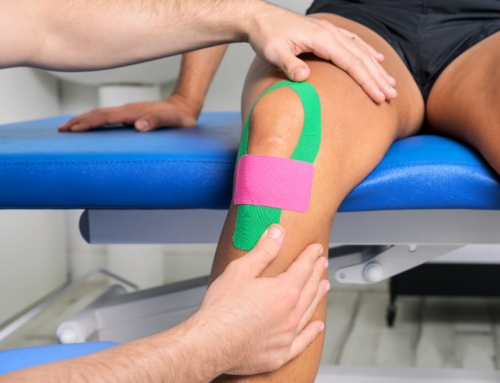 Do you find that you’re in pain more often than you should be? Do you suffer from neck, back, and joint pain? If the pain you’re experiencing is constant, we highly recommend a consultation with an orthopedic physician. The pain that you’re experiencing could be chronic pain, which can be caused by old injuries or even a health issue. The sooner you seek help the better! Our expert orthopedic physicians can help with aches and pains and find the cause.
Do you find that you’re in pain more often than you should be? Do you suffer from neck, back, and joint pain? If the pain you’re experiencing is constant, we highly recommend a consultation with an orthopedic physician. The pain that you’re experiencing could be chronic pain, which can be caused by old injuries or even a health issue. The sooner you seek help the better! Our expert orthopedic physicians can help with aches and pains and find the cause.
What is Chronic Pain
Chronic pain can range from mild to severe. The pain can be felt daily or off and on. Some types of pain include:
- A dull ache
- Throbbing
- Burning
- Shooting
- Squeezing
- Stinging
- Stiffness
Everyone experiences pain – from a cut to pulling a muscle. Pain is one way that the body tells you something is wrong. However, chronic pain is different. If you develop chronic pain from an injury or even a health issue, your body can hurt for weeks or even years.
Three Steps to Manage Chronic Pain
Chronic pain can affect sleep, work, and even simple daily activities. An orthopedic doctor can treat issues like arthritis, migraines, and pain due to an injury. We help our patients understand their chronic pain and how to meet any daily challenges due to their conditions.
The guide to chronic pain relief is broken down into three parts. These parts are as follows:
What are the Treatment Options for Chronic Pain?
There are many ways your doctor can treat chronic pain. While the main technique is pain medications, there are a few alternative methods including exercises, acupuncture, Transcutaneous Electro-Nerve Stimulator (TENS) and injections.
What are Medications That Can Be Prescribed for Chronic Pain?
There are many types of prescription medications for chronic pain management. The main medications used for chronic pain fall into the following categories:
- Nonsteroidal Anti-inflammatory medications and Acetaminophen. Most Nonsteroidal Anti-inflammatory medications, also known as NSAIDs, are over-the-counter medications. NSAIDs like Ibuprofen can be used for muscular and bone pain as well as some chronic pain syndromes.
- Antidepressants. When taking a lower dosage than what is needed for depression, this category of medications can be very helpful in controlling pain. Always talk to your pharmacist about any possible side effects.
- Anticonvulsants (Anti-seizure) Medications. This category of medications is helpful for nerve pain (burning or shooting pains).
- Muscle Relaxants. This category of medication is best used for pains such as acute setting of muscle spasms.
- Opioids. This category can be very effective in controlling certain types of chronic pain but are less effective (or require higher doses) for nerve pain. If you experience pain that lasts all day, a slow release Opioid may be recommended.





